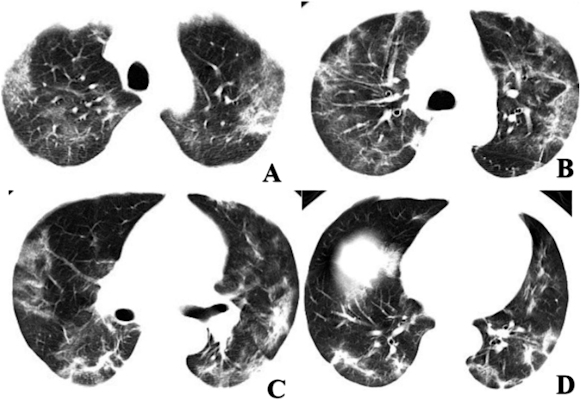CT outpaces DNA testing for early coronavirus detection
By Abraham Kim, AuntMinnie.com staff writer
February 13, 2020 — Researchers from China are reporting that chest CT was able to detect COVID-19, the disease caused by the novel coronavirus (2019-nCoV), in individuals with high clinical suspicion of the virus — even in cases with negative initial DNA tests — in a study published online February 12 in Radiology.
The group, led by Xingzhi Xie from Central South University in Hunan Province, examined the data of 167 patients suspected of having COVID-19 who underwent a CT exam and DNA testing. Two thoracic radiologists independently reviewed the CT scans and identified typical imaging findings such as ground-glass opacities, lung consolidation, or both for all of the cases. Clinicians additionally performed DNA analysis of the patients’ mouth swab samples using reverse transcription-polymerase chain reaction (RT-PCR).

After examining the data, the researchers found that the combination of CT and DNA analysis was able to confirm a diagnosis of COVID-19 in the vast majority of the patients (93%). However, in five of the patients (3%), CT scans indicated COVID-19 despite the disease being ruled out on initial DNA analysis.
DNA tests turned out to be negative for 2019-nCoV in multiple cases, contradicting the patients’ history of contact with infected individuals and the appearance of common signs suggestive of COVID-19 on their CT scans.
In the case of one 29-year-old male, the initial DNA test was negative for 2019-nCoV and so was the follow-up DNA test performed several days later. His CT scans showed multifocal mixed ground-glass opacities and parenchymal consolidation involving the subpleural regions of both lungs. The patient was not admitted to the hospital for isolated treatment until a third DNA test based on a sample collected eight days after initial presentation turned out positive for the virus.
Current diagnostic criteria regard DNA analysis of swab tests to be a standard and formative assessment for the diagnosis of COVID-19, but the study’s results show that DNA tests will occasionally produce false negatives, the authors noted. The limited supply and time-consuming nature of DNA tests, along with their susceptibility to false negatives, underscore the need for improved screening for the early detection of COVID-19 — a barrier that CT may help resolve.
“In the context of typical clinical presentation and exposure to other individuals with 2019-nCoV, CT features of viral pneumonia may be strongly suspicious for 2019-nCoV infection despite negative RT-PCR results,” they concluded. “In these cases, repeat swab testing and patient isolation should be considered.”
